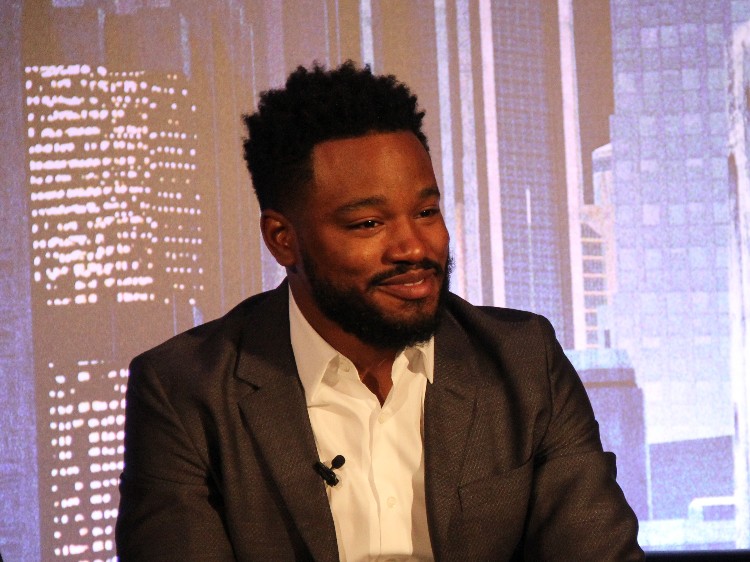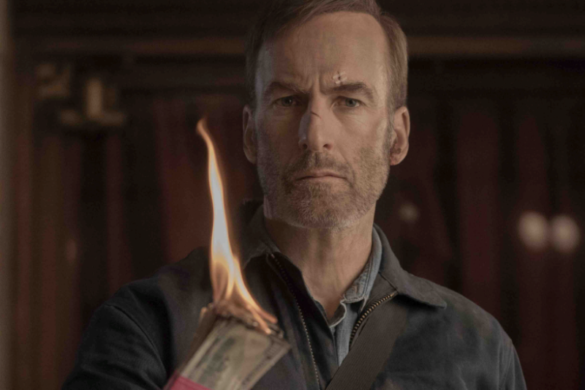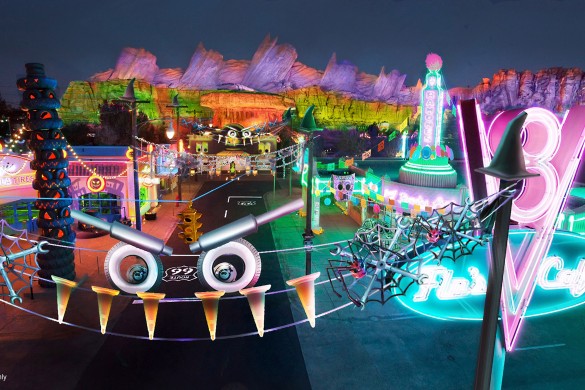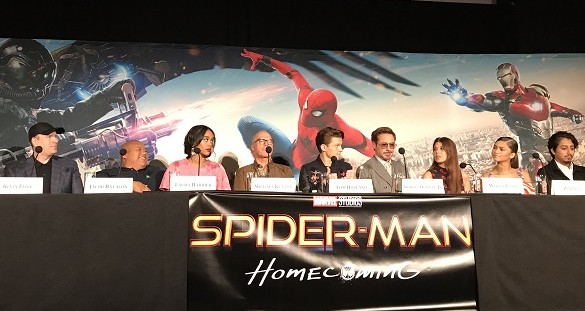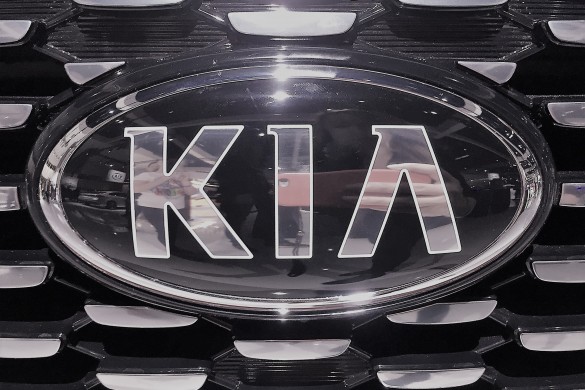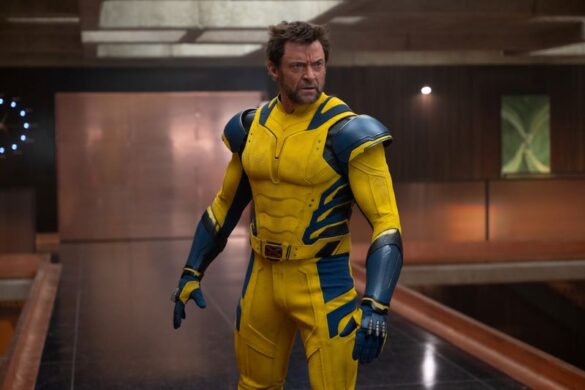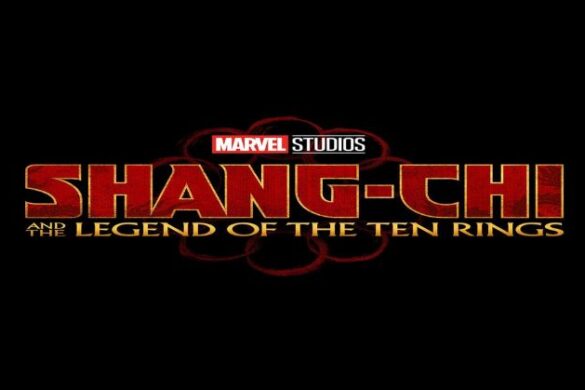Given the current social climate that we are living in, now is the perfect time to release Marvel Studios’ Black Panther. And they couldn’t have picked a better director than Ryan Coogler. Coogler is no longer a young up and coming director but a veteran having made his directorial debut in 2013 with the powerful crime drama Fruitvale Station. Based on a true story, the film centers on a 22-year-old African-American man, Oscar Grant (Michael B. Jordan) who was trying to clean up his act having spent time in prison, only to be wrongfully brutalized by the Oakland police who accused him of a crime he did not commit.
Coogler then followed that up with the very impressive Creed, the Rocky spinoff that centered on Adonis Creed (also played by Jordan), who trained to become a champion boxer and step out of his father’s shadow with the help of Rocky as his coach.
Now Coogler is stepping into the superhero movie world with Marvel Studios’ Black Panther. Their 18th film makes a very powerful statement, it being the first to have their title superhero who isn’t white. But it does a lot more than that. The film is by far the most political Marvel Studios has to offer, and it addresses real worth social issues that affect us all from the generational gap and identity to race, gender, and representation.
The director is able to address all of that and give a highly entertaining film. That’s It LA was invited to attend the Black Panther press junket to talk to the director about his approach to the film and what he hopes people take away from it.
Coogler tells us that he felt “incredibly blessed” to be a part of the process. “Kevin Feige and his team: Victoria Alonso, Louis D’Esposito, and Nate Moore, is an incredible opportunity,” Coogler said. “And it’s not something I ever imagined, you know, would happen.”
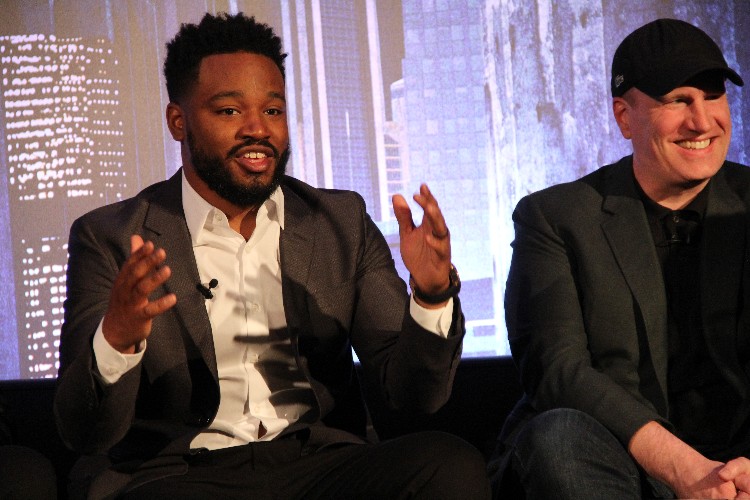
Marvel has been making some incredible films, some of which go far beyond telling a generic superhero story. They are meaningful and put story first before the comic book element. And that was something that Coogler wanted to give when making Black Panther. “I grew up loving comic books. I love not just comic books, but I love pop culture. I love toys, actions figures, you know, video games, all of that stuff,” Coogler said. “When I got older and got in the, you know, and realized that I wanted to make movies, right, that’s how I fell in love with internationalism, and, you know, cinema that left with you, you know, left you with something to chew on, with something to think about.”
While you may think a big studio like Marvel would want to be in full control of the films they release, Coogler says “It’s really just Kevin and his two friends. [laughs]. That’s really all it is.” He also credits Louie Esposito and Victoria Alonzo, the “right” and “left hand” of Marvel Studios.
The director said he went into the meeting wanting to address very specific themes. And Marvel was more than happy to let him make such a film. “I didn’t expect that, but as, I got to know these guys, you know, especially specifically Kevin, this is what he’s all about; you know what I mean,” Coogler said. “He’s all about making something that entertains people that works as a piece of entertainment that leaves you with something to think about.”
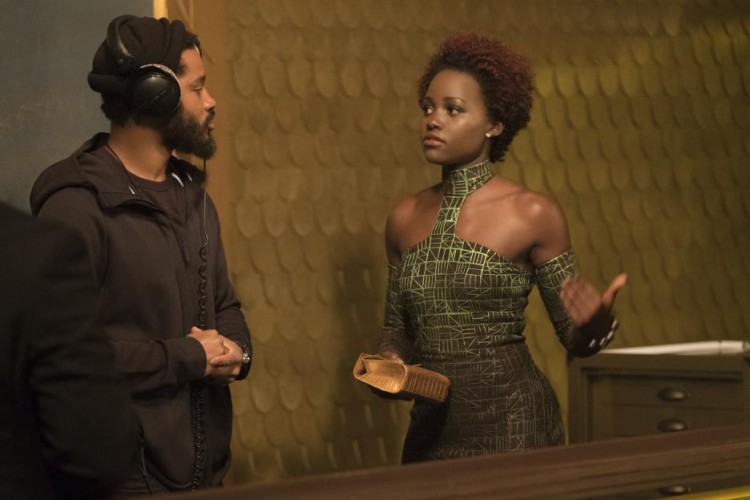 Early reviews praised Black Panther for giving us the women who aren’t sexualized or exploited, but rather developed through strong arcs and characteristics. Okoye (Danai Gurira) is fiercely loyal but also thinks for herself, while Nakia (Lupita N’yongo) is determined, and Shuri (Letitia Wright) is free-spirited and impetuous. However, there weren’t strong women only on screen, there were also strong women off-screen. Coogler spoke about how it was more about “hired women who were the best person for the job.” “They weren’t hired because they were women, they were hired because they were the best for the job,” Coogler said. “That was our cinematographer Rachel Morrison, our costume designer Ruth Carter, production designer Hannah Beachler and our assistant director who was responsible for getting her team going Lisa Satriano, you know, and post-production the film was edited by Michael Shawver and Debbie Berman who is from South Africa, you know, and finished by Victoria Alonzo.”
Early reviews praised Black Panther for giving us the women who aren’t sexualized or exploited, but rather developed through strong arcs and characteristics. Okoye (Danai Gurira) is fiercely loyal but also thinks for herself, while Nakia (Lupita N’yongo) is determined, and Shuri (Letitia Wright) is free-spirited and impetuous. However, there weren’t strong women only on screen, there were also strong women off-screen. Coogler spoke about how it was more about “hired women who were the best person for the job.” “They weren’t hired because they were women, they were hired because they were the best for the job,” Coogler said. “That was our cinematographer Rachel Morrison, our costume designer Ruth Carter, production designer Hannah Beachler and our assistant director who was responsible for getting her team going Lisa Satriano, you know, and post-production the film was edited by Michael Shawver and Debbie Berman who is from South Africa, you know, and finished by Victoria Alonzo.”
Also, Morrison became the first female cinematographer to earn an Academy Award this year for her work on Mudbound. So you know that Marvel wants nothing but the best for their films.
“I was incredibly blessed to have these people, to have their perspective and had their fingerprints all over it,” Coogler adds. “When you saw all those frames, when you saw all that stuff, you know, that presence, you know, over half of the society, over half the population; you know what I’m saying, it was there constantly and in full effect.”

